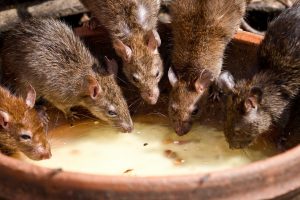Do rats think like humans? Or are humans made to resemble rats? In India, rats love liquor, they love marijuana too. Are rats in India alcoholics and addicts?
Infamous but useful rats

They were known to carry the disease-ridden fleas that triggered the frightening Black Plague annihilating Europe, North Africa, and Central Asia in the 14th century. Despite their infamous reputation, they always serve as ideal species for biomedical research animal models.
Why is this so? It is because of their bodily, functional, and inherent similarity to humans. The advantages of using them in research and experiments include their tiny size, how easy they are to maintain, their short life cycles, and ample genetic resources.
While laboratory animal research continues to pose moral questions, especially concerning animal safety and well-being, the scientific achievements associated with lab rats are numerous. They have been utilized for animal testing for over 150 years, and the number of rodent-based studies continues to grow.
“Researchers study rodents and mice because they are very similar to people genetically,” according to the Foundation for Biomedical Research.” But one big reason why they’re used in medical testing is that their genetic, biological, and behavioral characteristics closely resemble those of humans.
So, this must be why rodents consumed 1,000 liters of liquor that were kept at an Indian police station. Perhaps, it is also the reason why nearly 200kg of weed vanished from a police station (again in India) because rats have gorged on the addictive substance.
Rats in India are addicts?
In the latest Indian police hullaballoo, the police were asked to produce 195kg of drugs as evidence in a court case in Uttar Pradesh state but they had nothing to show. The officers said that the “fearless mice” were responsible for “destroying” the evidence while it was in storage.
Judge Sanjay Chaudhary said, “Rats are tiny animals and they have no fear of the police. It’s difficult to protect the drug from them.” Amusingly, it is now the fearsome cannabis that needs protection.
It wasn’t the first time though that Indian police forces blamed rodents for drugs and liquors vanishing into thin air.
Judge Sanjay cited a case where a portion of an enormous 386kg stash of weed was also eaten by the rodents.
A study from Washington State University’s (WSU) Integrative Physiology and Neuroscience unit in Pullman found that rats exposed to cannabis vapor respond in much the same way as humans who smoke marijuana.
$1000-Question
So, in answer to the questions above, yes, rats are wired very similarly to humans. And since they are strongly attracted to the smell of cannabis, they will flock towards it with vigor and can become addicted to it. They can also become “alcoholics.”
But going back to the “vanished” marijuana stash and the thousand-liter liquor inside the Indian police stations, the question that needs to be answered yet remains –
Are the rodents responsible? Or the sticky-fingered policemen?
Read More News:
Donald Trump jokes about size of daughter’s wedding ring

